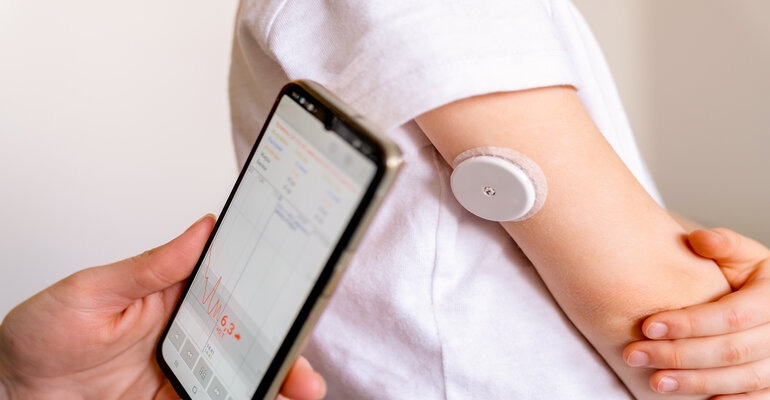Medicare Expands Continuous Glucose Monitoring Coverage
The revision removes the requirement of multiple daily injections and expands to individuals with problematic hypoglycemic events.

Having gone into effect on April 16, Medicare now covers continuous glucose monitoring systems (CGMs) for a broader group of beneficiaries with diabetes after removing the prior requirement of multiple daily insulin injections to be eligible for reimbursement. Additionally, coverage now extends to certain non-insulin-using individuals who have a history of problematic hypoglycemic events — when one’s blood glucose is lower than normal, potentially leading to dizziness or becoming unconscious.
With almost 11 million adults over the age of 65 living with diabetes, an additional two million Medicare beneficiaries with the disease that use insulin are now eligible for CGM reimbursement through the CMS decision. Specifically for Dexcom, the expanded group of users could contribute to about 1% of its 2023 revenue, roughly 12,000 patients, according to William Blair analyst Margaret Kaczor. If the company is able to accelerate the commercial efforts of its Dexcom portfolio to cover the additional group — including its Dexcom G7 — it could also add another 5,000 patients on top of initial projections.
“This landmark CMS decision has the potential to bring Dexcom CGM to millions more Medicare patients living with diabetes,” said Teri Lawver, executive vice president and chief commercial officer at Dexcom.
Commending the expansion, Dexcom highlighted its 2021 MOBILE study, which they say was used as a primary piece of clinical evidence that led to the extended coverage. The study demonstrated that CGM use significantly improves A1C and increases time in range for adults with type 2 diabetes on basal insulin.
“This is a major win for the diabetes community, and another validation of how CGM can benefit all people living with diabetes,” said Thomas Martens, MD, internal medicine physician and MOBILE study investigator, in a press release. “The evidence is clear: Real-time CGM use helps people with diabetes on all types of insulin, not just mealtime insulin, achieve better glycemic outcomes. This CMS decision is an important step forward in improving access to CGM technology, and we hope private insurers will follow.”
Abbott Laboratories also expressed praise for CMS in its decision to expand coverage, which will allow additional patients access to its FreeStyle Libre portfolio.
"FreeStyle Libre technology was designed from the start to be affordable and accessible," said Jared Watkin, senior vice president for Abbott's diabetes care business, in a press release. "We've been focused on highlighting the tremendous benefits of continuous glucose monitoring to help people living with diabetes manage their care easily and pain-free. Increasing access is a monumental step by Medicare to allow more people to have access to FreeStyle Libre so they can spend less time worrying and more time living healthier, better lives."
With Medicare’s CGM coverage updated, how long before private insurers step up to the plate?
About the Author(s)
You May Also Like



.png?width=300&auto=webp&quality=80&disable=upscale)
